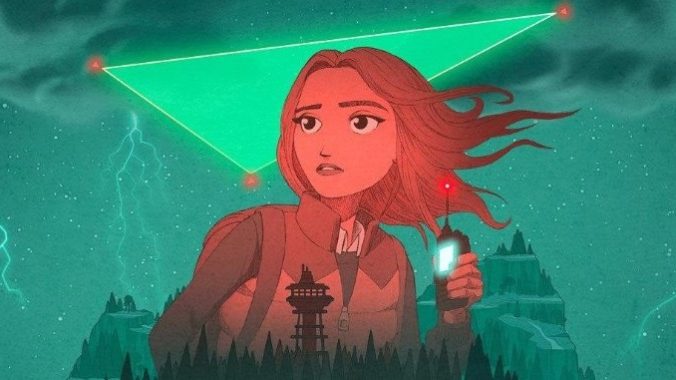Oxenfree II: Lost Signals Captures the Horror of Parenthood
The haunting adventure game understands that one of the greatest fears of all is failing our children like our parents have failed us

Spoiler Warning: Certain Oxenfree II plot points are discussed below.
“I could never be
I could never be
I could never be ready for this.
I could never be
I could never be
I could never be ready.”
Neil Druckmann, the director of both The Last of Us games, shared in an interview that, during playtesting, players who weren’t parents were mixed on whether they agreed with Joel’s actions at the end of the game. Players who were parents, however, apparently unanimously said that they would have done the same thing if they were in a situation where their child’s life was at stake.
When I heard this, I was shocked. Clearly, to me, Joel’s actions at the end of the first game were horrific, damning the lives of countless people in order to save just one life. I can empathize with why someone might be driven to do terrible things to protect someone who is for all intents and purposes their child, but for every single parent to justify mass murder in order to save their child made me believe there was something very wrong with the minds of parents.
To some extent, I still believe this. For a long time, I believed that willingly bringing any child into this world was unethical. There’s no way to ask for consent, and absolutely no promise that the world will be anything like what it is by the time those children grow old, if there’s still any human civilization around at all by then. Plus, with all the orphaned and struggling children already in the world, why would someone bring another life into the equation?
As it turns out, there are a lot of good reasons. Making and caring for a child someone can call their own flesh and blood is deeply important for lots of people; for some it’s a moral and spiritual imperative. While I may not understand that desire, I can understand why other people have it. I believe that people should have the unhindered choice of whether or not to bring someone into the world, and not only does that mean that anyone should have the right and access to contraception, abortions, etc., but also that, if they want children, they should be able to have them and have the resources to care for them.
But even though I’ve made peace with this, I don’t see any world in which I will ever have any of my own. I wouldn’t want to risk, either through nature or nurture, passing on any of my many mental illnesses to a child, and although I accept that neurodivergence is something to be accepted and celebrated, it not only created countless challenges for me, but for my parents as well. I simply don’t want to spin those dice.
I was surprised, then, when, about halfway through playing Oxenfree II: Lost Signals, the player character, Riley (Elizabeth Saydah), stands quietly on a bridge next to her coworker, Jacob (Joe Bianco), and a single dialogue option appears: “I’m pregnant.”
I immediately selected it.
From there, I was given freedom to tell Jacob how it happened (unplanned), how Riley felt about it (terrified), and what his name was going to be (Rex). Riley was abandoned by her mother at an early age, and her relationship with her father wasn’t great. Of course she’s scared by all the spooky ghosts and supernatural phenomena, but what gets to her the most is what’s going to happen to Rex (Lev Rodriguez Shivers), and what being a parent is going to do to her.